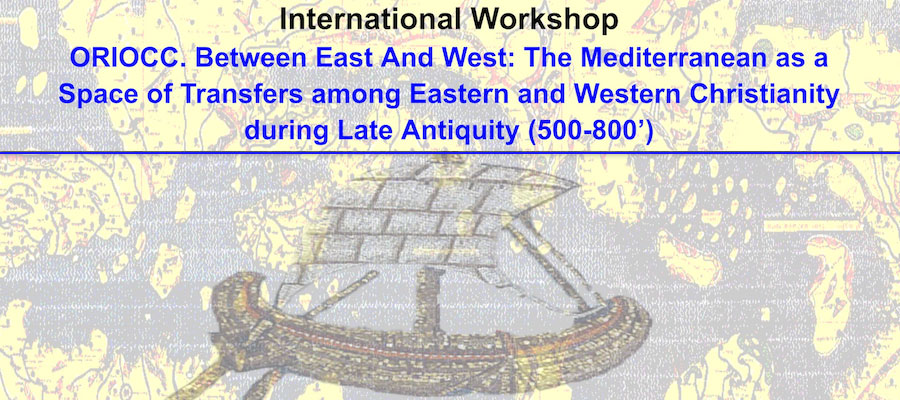Between East and West: The Mediterranean as a Space of Transfers among Eastern and Western Christianity during Late Antiquity (500–800), University of Granada, November 21–22, 2024
This international workshop aims to examine exchanges and transfers between the Eastern and Western Christianity in the Mediterranean during Late Antiquity (500-800 AD). The event seeks to approach to the proposed theme under the premise that the Mediterranean Sea, as observed in contemporary times, served not as a barrier but rather as a conduit for the dissemination of people, ideas and material elements pertaining to Christianity across both shores: those belonging to the Byzantine Empire and those of the emerging Romano-Germanic kingdoms in the post-Roman West and those that occurred among the territories of the Late Antique Western Europe. In essence, this workshop intends to take an interdisciplinary approach to Christian transfers (History, Archeology, Gender studies et alia). In conclusion, contributions addressing this topic from historical, philological, archaeological and gender studies’ approach, as well as other relevant perspectives related to Humanities, are mostly welcome.
Since Prehistoric times, the Mediterranean has served not merely as a boundary but as a conduit for the people and ideas’ transfer, evident in both material culture and written sources. Dispelling the notion that the decline of the Western Roman Empire led to isolation, regionalization and the destruction of Mediterranean world’s unity, it becomes evident that communication between the shores persisted. This phenomenon is also observable in the Late Antique Christianity, the focal framework of this international workshop.
Noteworthy influences from the East to the West include the phenomenon of monasticism and its associated literature (passions and hagiographies), the reception of martyr’s relics from the Byzantine territory as well as the arrival of different christians for trading or other reasons (e.g. Ibn Mugīṯ al-Rūmī -Tarik’s commander- for conquering Hispania) Regarding transfers from the West to the East, though less extensively studied and more limited transfers from the West to the East are exemplified by pilgrimages to the Holy Land (e.g. Peregrinatio Egeriae) and the diplomatic missions of Western prelates to Constantinople (e.g. Leander of Seville went to Constantinople to get funds for Hermenegild). In addition to these cases, transfers among different Germanic kingdoms are of particular interest, such as pilgrimages to Rome and the propagation of cults surrounding saints (such as St. Martin and St. Vincent).
By contrasting the aforementioned assumptions in both Byzantium and the post-imperial Western realms, the objective of this congress is to examine the mobility that existed between Eastern and Western Christianity, as well as the influences within the diverse scenarios of post-Roman Western Europe.
Early Career Researchers (pre- or post-doctoral scholars) are encouraged to submit proposals.
